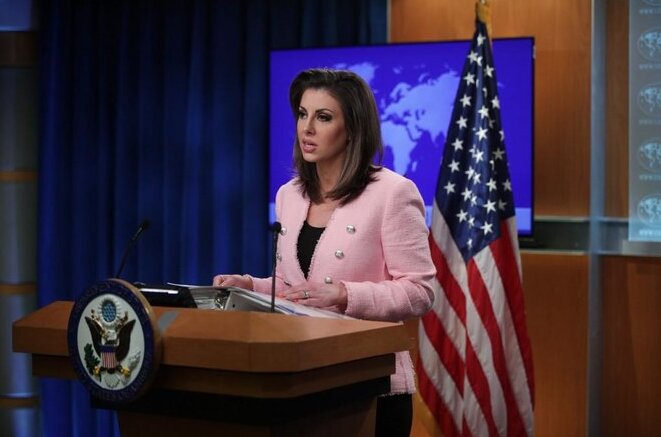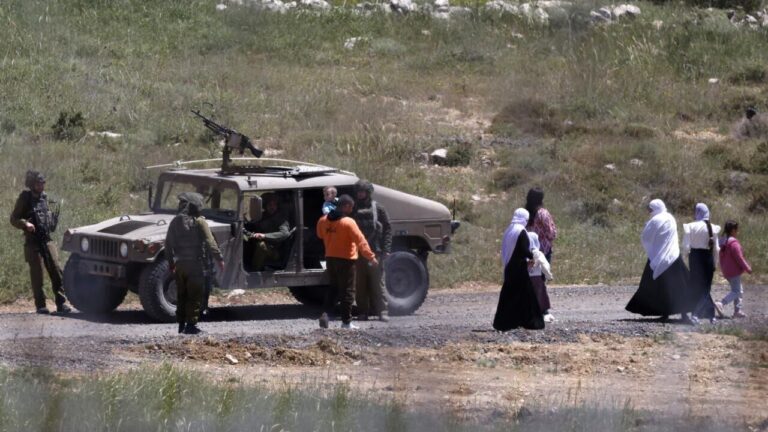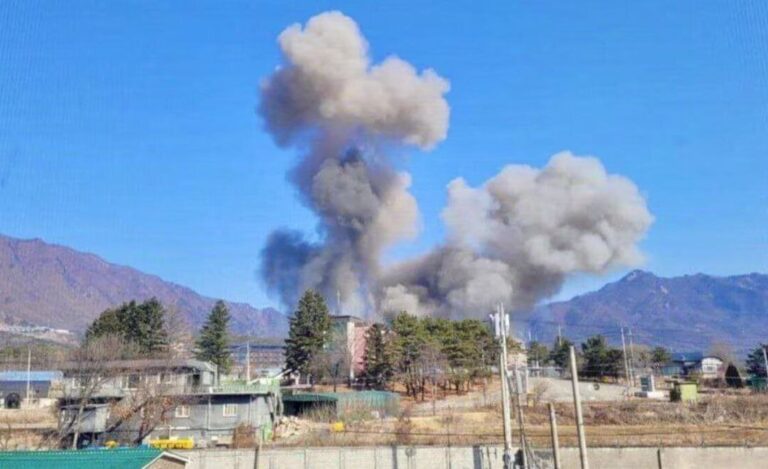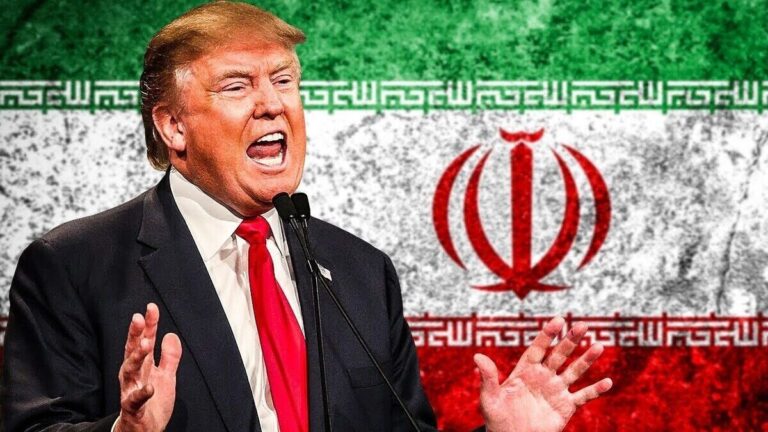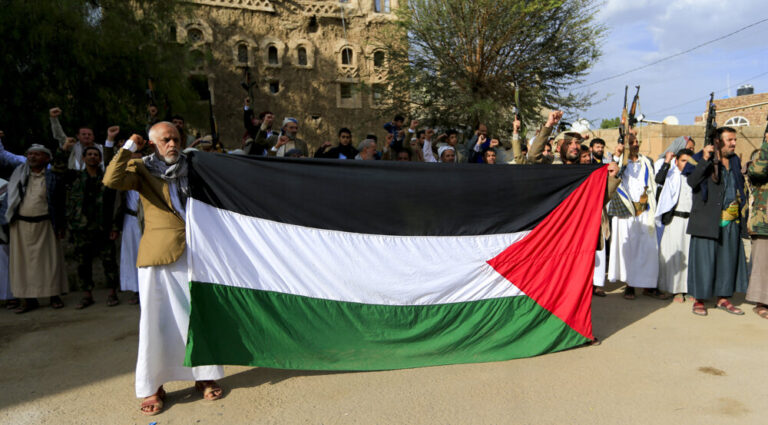Ortagus’s Bold Diplomacy: A Reflection of Evolving American Foreign Policy
In a heated exchange on social media, Morgan Ortagus, the U.S. Deputy Special Envoy to West Asia, recently addressed Lebanon’s Druze leader Walid Jumblatt with a sharp retort. This incident highlights the complexities of U.S.-Lebanon relations and the ongoing challenges in diplomatic communication. Ortagus’s comment came in response to Jumblatt’s criticism of U.S. conditions for Lebanon, which he labeled as “impossible.”
Ortagus’s statement, “Crack is wack, Walid,” was perceived as an accusation towards Jumblatt, suggesting he was politically unaware and out of touch with American perspectives. Jumblatt countered with the phrase, “The Ugly American: Morgan Ortagus,” sharing Hans LaRuin’s provocative painting, “Death Directs the Bullet.” This artwork, painted in somber tones, illustrates the grim reality of warfare, depicting death commanding a sniper during World War I.
The title of Jumblatt’s response draws inspiration from the 1958 political novel The Ugly American by Eugene Burdick and William Lederer. This book critiques the failures of U.S. diplomats in Southeast Asia, advocating for a deeper understanding of local cultures and languages to effect positive change.
In another incident, Ortagus responded to Hezbollah’s Secretary-General, Sheikh Naim Qassem, with the dismissive remark, “Yawn.” This comment came after Qassem reiterated Hezbollah’s stance against disarmament. Such remarks reflect a broader trend in U.S. diplomatic behavior under the previous administration, often characterized as crude and confrontational. This approach raises concerns about the potential consequences for U.S.-Lebanon relations.
Key Issues Raised by Ortagus’s Comments:
- Insulting remarks directed at Lebanese leaders, which undermine diplomatic norms.
- Perceived arrogance that dismisses local concerns and perspectives.
- Challenges faced by Lebanon in navigating U.S. expectations regarding normalization with Israel.
Reports indicate that Ortagus’s irritation with Lebanese Army Commander General Rodolphe Heikal stemmed from Heikal’s choice of terms during their recent meeting. The commander referred to “Israeli Enemy Forces” instead of “Defense Forces,” and “Settlers” rather than “citizens.” This terminology complicates Washington’s ongoing efforts to promote normalization between Lebanon and Israel, highlighting the complexities of regional politics.
General Heikal’s terminology reflects a conscious effort to counter the narrative propagated by anti-Hezbollah factions in Lebanon, who often blame the resistance for hindrances in implementing UN Resolution 1701. His statements emphasize that the primary obstacle to peace is the Israeli occupation and ongoing ceasefire violations, which have resulted in significant casualties since the ceasefire began.
Overview of General Heikal’s Key Points:
- Lebanon and its army have committed to ceasefire arrangements, contrasting Israel’s actions.
- The Israeli occupation is the main barrier to achieving a lasting peace.
- Ceasefire violations have led to over 2,740 incidents, resulting in 190 fatalities and 485 injuries, including losses from the Lebanese Army.
In conclusion, the exchange between Ortagus and Jumblatt underscores the ongoing tensions in U.S.-Lebanon relations and the broader geopolitical landscape. Diplomatic communications require sensitivity and an understanding of local contexts, which seem to be lacking in recent interactions. As Lebanon navigates these complex dynamics, the importance of respectful dialogue and mutual understanding becomes increasingly evident.
